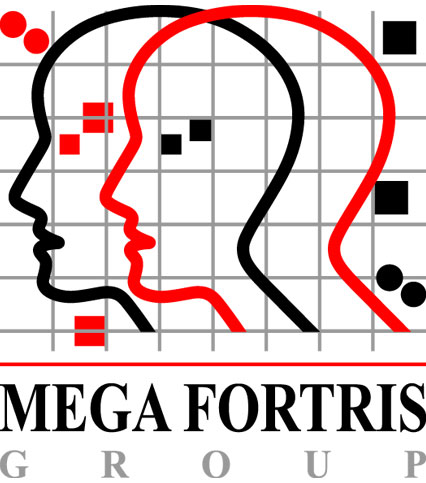



Biodegradable plastic is designed to be used as a source of carbon by living organisms, thereby consuming the plastic material.
The main raw material used to manufacture biodegradable plastics is starch, a natural polymer obtained from corn, wheat or potatoes. Among these sources, the one that is giving the best results is potato starch, as apart from being a renewable and inexhaustible resource, it has short and closed life cycles with high crop yields per hectare, low water consumption, promotes the development of the agricultural sector and boosts the cultivation of areas that are being abandoned.
This Biodegradable additive can be added to all Plastic Security Seals offered by Mega Fortris allowing a green environmentally friendly supply chain.
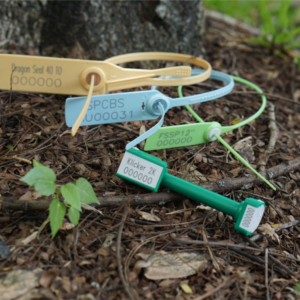
PP
Polypropylene (PP) is used in a wide variety of applications including food packaging, textiles, laboratory equipment, automotive components and transparent films. It has high resistance to a variety of chemical solvents, as well as alkalis and acids. As well as high impact resistance and temperature and heat balance that allow the seals made with this material to perform in a wide variety of environments.
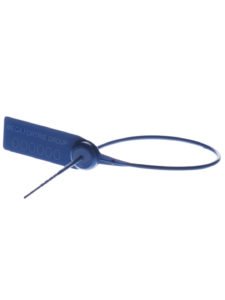
Cold Weather PP
The key benefit of Cold weather Polypropylene (PP) is its ability to retain the same impact resistance at low temperatures as it does at less extreme temperatures. This allows this material to be used for seals being used to secure goods in cold storage or extreme environments and still deliver great security value. This material is also FDA approved for securing food items allowing security against tampering and contamination.
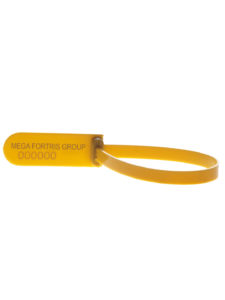
Nylon
Nylon is a strong material that provides great resistance against a wide range of adverse conditions, such as corrosive chemicals, weather effects, heat damage, oil and solvents. This material is also highly impact and wear resistant making it a good alternative for more heavy-duty applications that require a plastic seal.
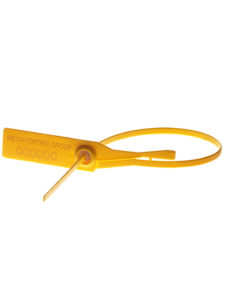
Glass Fiber
The main advantage of Polypropylene (PP) Glass Fibre is the low cost to high tensile strength, high chemical resistance, and insulating properties ratio. This makes this material a popular choice for many plastic seals.
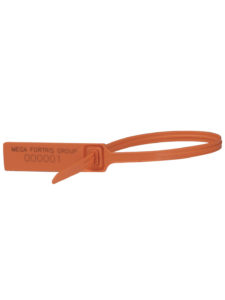
ABS
ABS has a low melting point allowing this material to be easily used for injection molding over seals locking mechanisms. ABS also has a high tensile strength and is extremely resistant to physical impacts, in addition to corrosion resistance. Another benefit this material offers to the security seals market is its ability to clearly discolour after any attempt to manipulate the seal. Meaning the finished plastic once applied offers high strength for rough uses, resistance to environmental conditions and high tamper evidence making ABS ideal for the seal’s sector.
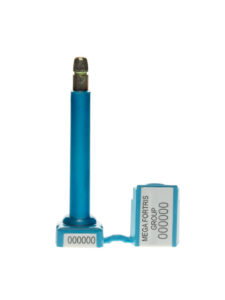
Zinc
Zinc is a common material used in a lot of our seals because it offers a great strength. In addition to excellent corrosion and oxidisation resistance that sets this material apart from iron and steel. This allows our seals to provide high security value for a wide range of uses, even for longer haul applications that will be exposed to various environmental conditions.
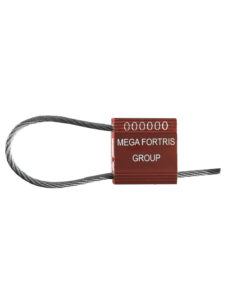
In the field of passive safety it is true that there are different types of marking. Such as thermo-printing, injected ink, thermodigital, laser, pressure and mold engraving. At Mega Fortris, security is our top priority, which is why we opt for indelible markings.
Here at Mega Fortris we offer laser etching of a wide range of security markings onto our seals, Which includes the following:
These are possible marking methods for all the cables, bolts, fixed, pull up and application seals.
Company Logo
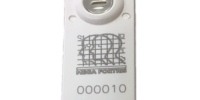
Correlative or sequential numbering
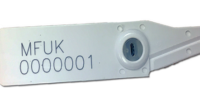
Barcode marking
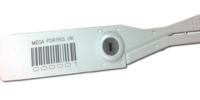
Company name marking
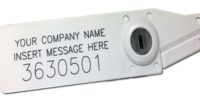
Learn More:
Check out our other Knowledge center pages for more information on the ins and outs of the security seal and tamper evident product market.